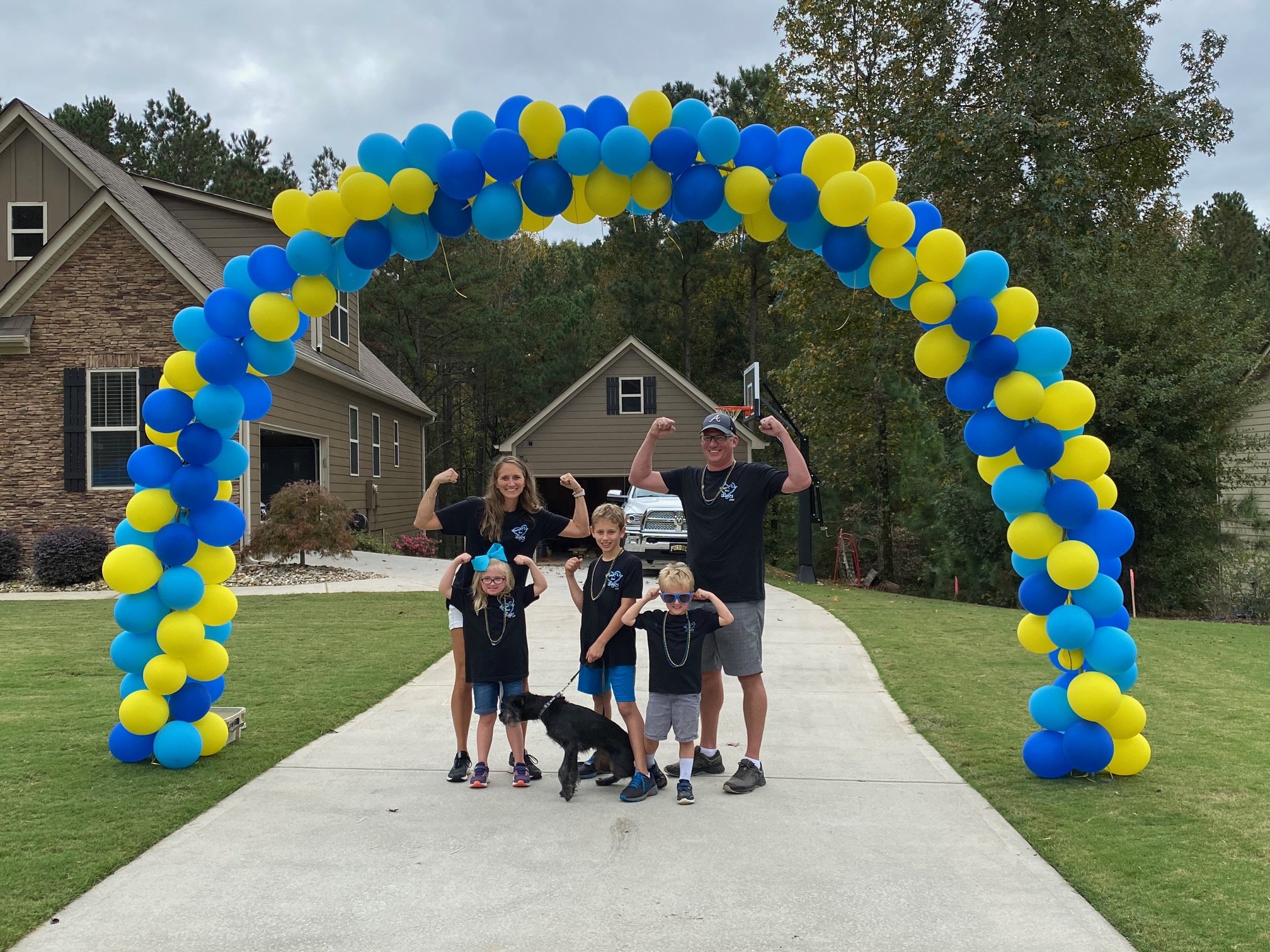
Support
We are committed to providing opportunities for families to get the support they need and make lasting connections. We do this through community-based groups across the metro area, parent programs, sibling support, social events, outreach to the medical community and parent-to-parent connection for new parents.
-
We invite you to join our community of individuals with Down syndrome, parents, family, friends, caregivers, professionals, practitioners, researchers and organizations dedicated to improving quality of life for people with Down syndrome.
We facilitate local networking groups in communities throughout the metro Atlanta area, including a support group for the Hispanic community. These groups offer opportunities for playgroups, parent education, fundraising, and community-based social events. These mini associations are the key to helping DSAA serve the large Atlanta metro area.
DSAA networking groups are typically comprised of both new and seasoned parents whose children have Down syndrome. Members are free to join one or more groups to share information and resources, get emotional support and find answers to challenges associated with rearing a child with Down syndrome.
Local groups are supported by DSAA and run by parent volunteers. Members typically stay in touch via events, email, and private Facebook groups. DSAA is committed to helping any local networking group get organized and run more efficiently.
To get connected with a group, contact Debbie Shadrix at debbie.shadrix@dsaatl.org
-
We organize Moms Night Out several times each year for moms across metro Atlanta to gather and socialize. Events have included a Tattoos and Mimosas event where moms gathered to get #theluckyfewtattoo together, wine tastings and speakers.
If you’d like to plan one in your area, please email Debbie Shadrix at
debbie.shadrix@dsaatl.org -
One of the most common questions asked when a family learns their child has/will be born with Down syndrome is, "how is this going to affect my other child(ren)". Although the typical effect is a positive one, special programs have been created because of the important role siblings play in the development of their brother/sister with Down syndrome. DSAA is in the process of developing a regular Sibling Support Group.
-
Black Family Connection (BDSFC) is a program of the Down Syndrome Association of Atlanta. It was created from an expressed community need to gather black families raising individuals with Down syndrome. BDSFC is headed by members of our community who are passionate about creating a common, safe space for other black families like theirs. Learn more on the BDSFC Facebook group.
-
The Asociación Hispana de Síndrome de Down en Atlanta (AHSDA) is a group of volunteer Hispanic parents interested in helping and guiding other local parents of children with Down syndrome.
-
Provides resources to hospitals, social workers, OB/GYN and perinatology practices in the Metro Atlanta area. The initiative helps medical professionals guide new and expectant parents as they navigate the first steps and beyond of this new journey. Learn more.
-
DSAA partners with Jack’s Basket to provide a welcome basket to new or expectant parents. Parent Liaisons drop off or deliver baskets in person (per the recipient’s preference) at home or at the hospital, and are available to meet with or speak to new parents when they are ready. Bilingual Parent Liaisons are available.
Parent Liaisons are assigned to one or more hospitals and contact the labor and delivery, NICU, and social work staffs there to introduce themselves and DSAA, and direct new parent to DSAA resources.
Because many medical professionals are not equipped with updated information on Down syndrome, Parent Liaisons play a critical role in helping new families adjust. Additionally, parent liaisons also provide a special connection to new parents who often are unsure of what to expect. Parents or grandparents of children with Down syndrome themselves, Parent Liaisons can share their own stories and give much-needed support and advice while offering a realistic picture of what it is like to raise a child with Down syndrome.
